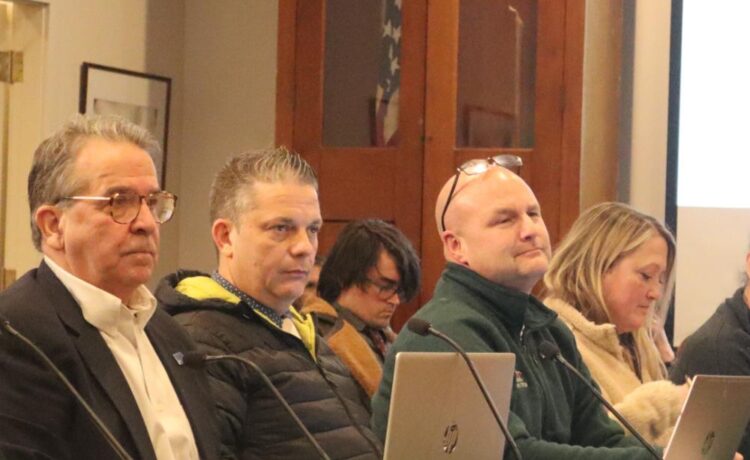After a December joint meeting raised the serious possibility of a tax override to bridge a budget shortfall for the school district, the School Committee voted unanimously at its Jan. 8 meeting to tap into its “school choice” funds to bridge the gap for fiscal year 2025.
The funds stem from the state’s Inter-District School Choice program, which allows families to enroll students in schools outside of their home district, which in turn pays Dartmouth for educating the student. Dartmouth opened itself up to school choice in 2016.
The school district started the year with about $2.3 million in school-choice funds, said Assistant Superintendent James Kiely.
While the use of the funds will settle the school district budget for the upcoming year, School Committee Vice Chair Chris Oliver said the fund alone is not a long-term solution to the school district’s financial needs.
“We can’t continue to operate this way,” Oliver said at a joint meeting with the Select Board and Finance Committee on Jan. 8. “We got to have an override.”
As it stands, 4 percent of Dartmouth students, about 132 students total, are enrolled in the school choice program, which adds up to about $680,000 in additional revenue for the school district each year. The district built up a larger stockpile of school-choice funds over the Covid pandemic, when extra funding came in from the state and federal government.
The school district’s fiscal year 2025 budget, which the school-choice funds will now help cover, only gets Dartmouth to “level service,” meaning the same services and staffing the district already provides. Costs are rising across the board, but particularly for the school system, and the typical property tax increase of 2.5%, the maximum allowed by the state, will not cover the estimated expenses for the year.
The tax override would have raised residential tax bills by an estimated average of $172 a year.
The alternative, according to Town Administrator Shawn MacInnes’s presentation at the joint meeting, would be to cut school district staff — around 17.5 full-time employees across the town.
“We are begging just to be level-serviced,” said Dartmouth Middle School teacher Maureen Sullivan-Boyle after the meeting. “People move to this town … a lot of times for the school district — and that’s going to stop.”
The fiscal year 2026 budget will be no less challenging: MacInnes estimated an extra $1.17 million increase for 2026, on top of the estimated $1.5 million that school-choice funds will cover this year.
“It’s unsustainable — no matter what, we still need an override,” said School Committee member Elizabeth Coughlin at the joint meeting. “The only thing we get from using school-choice funds is it gives us time to be more thoughtful about the override.”
If the town had chosen to pursue an override this year, it would have required a fast turnaround to get it on the April Election ballot.
“Part of me feels like we’re kicking the can down the road a little bit,” Sullivan-Boyle said. “However, [the override] could be a once-in-a-lifetime opportunity, and so to do it correctly, we should not be doing it in a month’s time.”













